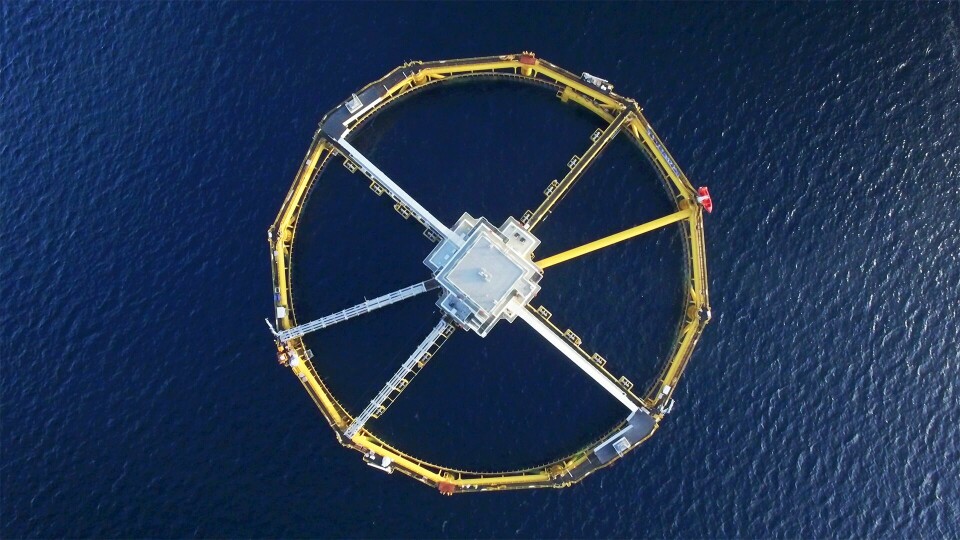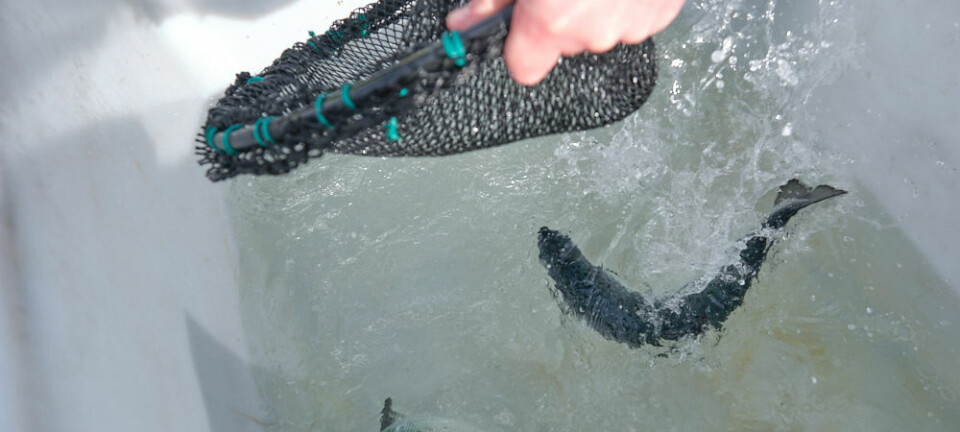
Permit conversion anchors the future for Ocean Farm 1
The eight temporary development permits granted to SalMar’s pioneering Ocean Farm 1 have been converted into ordinary commercial food fish permits by Norway’s Fisheries Directorate.
This means that the company is now free to use the permits to continue to operate Ocean Farm 1, or to use them in general production.
However, before the permits can be used as commercial permits, the holder must apply to the Fisheries Directorate for placement in one or more production areas. Once the Directorate has made a placement, the company can apply for clearance from the relevant county authority.
Incentive
Development permits have been used as an incentive to encourage and enable Norwegian salmon farmers and entrepreneurs to create farming methods that solve issues associated with net pen farming, such as environmental impact and a lack of space for new farms near shore.
The permits are time limited to the duration of a project. If the project is successful, the developers can apply to have the permits converted to commercial permits at a fraction of the cost of buying extra biomass licences under Norway’s auction system. SalMar is the first company to convert its development permits.
SalMar chief executive Gustav Witzøe said in a stock exchange announcement that he was proud that the company had completed a project that it believes is pioneering in the efforts to develop an increasingly sustainable aquaculture industry.

NOK 1 billion investment
“In the realisation of this project, SalMar has helped to fulfil the authorities’ objective with the development permits to solve important environmental and area challenges facing the industry,” said Witzøe.
“SalMar has has now invested approximately NOK 1 billion to design and develop Ocean Farm 1, with over 50% of this amount spent on services and equipment from Norwegian knowledge companies.
“The Ocean Farm project would have been impossible to realise without the development licence scheme, which the government introduced in 2015 and which has had broad cross-party support in the Norwegian parliament.”
Production unit
Witzøe said conversion of the development licences would not affect the operation of Ocean Farm 1, which is currently approaching the end of its second production cycle.
“The positive operational experiences gained during the first two productions cycles will pave the way for Ocean Farm 1 to become an important production unit in SalMar’s overall fish farming operations going forward,” said the chief executive.
“SalMar has already launched a project to investigate the financial and technical conditions necessary to build additional units with a similar design to Ocean Farm 1 for deployment in more exposed positions within the area of application of the Norwegian Planning and Building Act. Our experiences from Ocean Farm 1 reinforce SalMar’s firm belief in offshore farming.”
In March, Scottish Sea Farms – which is co-owned by SalMar and fellow Norwegian salmon farmer Lerøy - announced that it wanted to trial Scotland’s first open ocean farm and had the financial backing of its owners for the project.
If realised, the project could see an offshore farm similar to Ocean Farm 1 in Scottish waters.























































